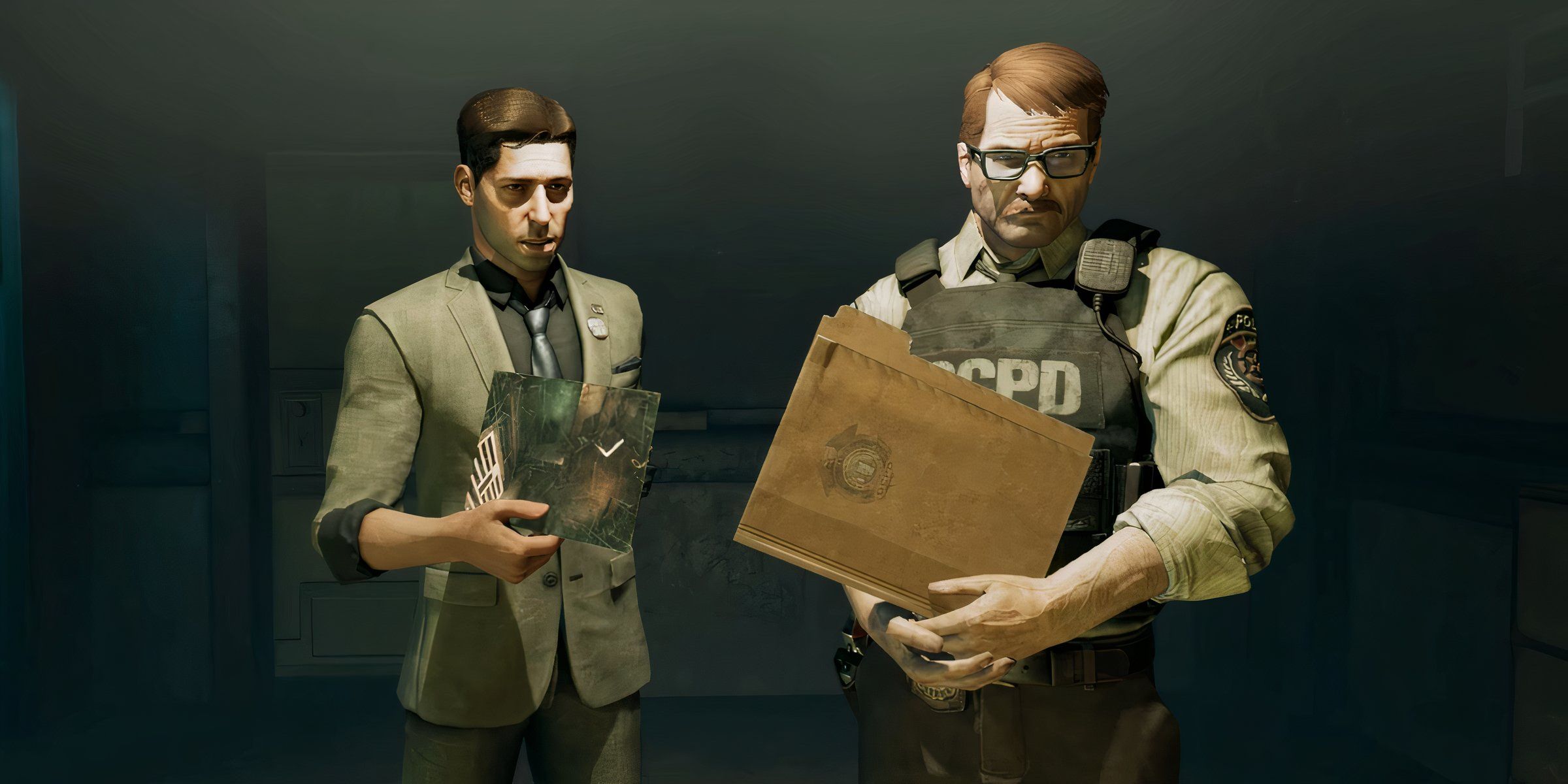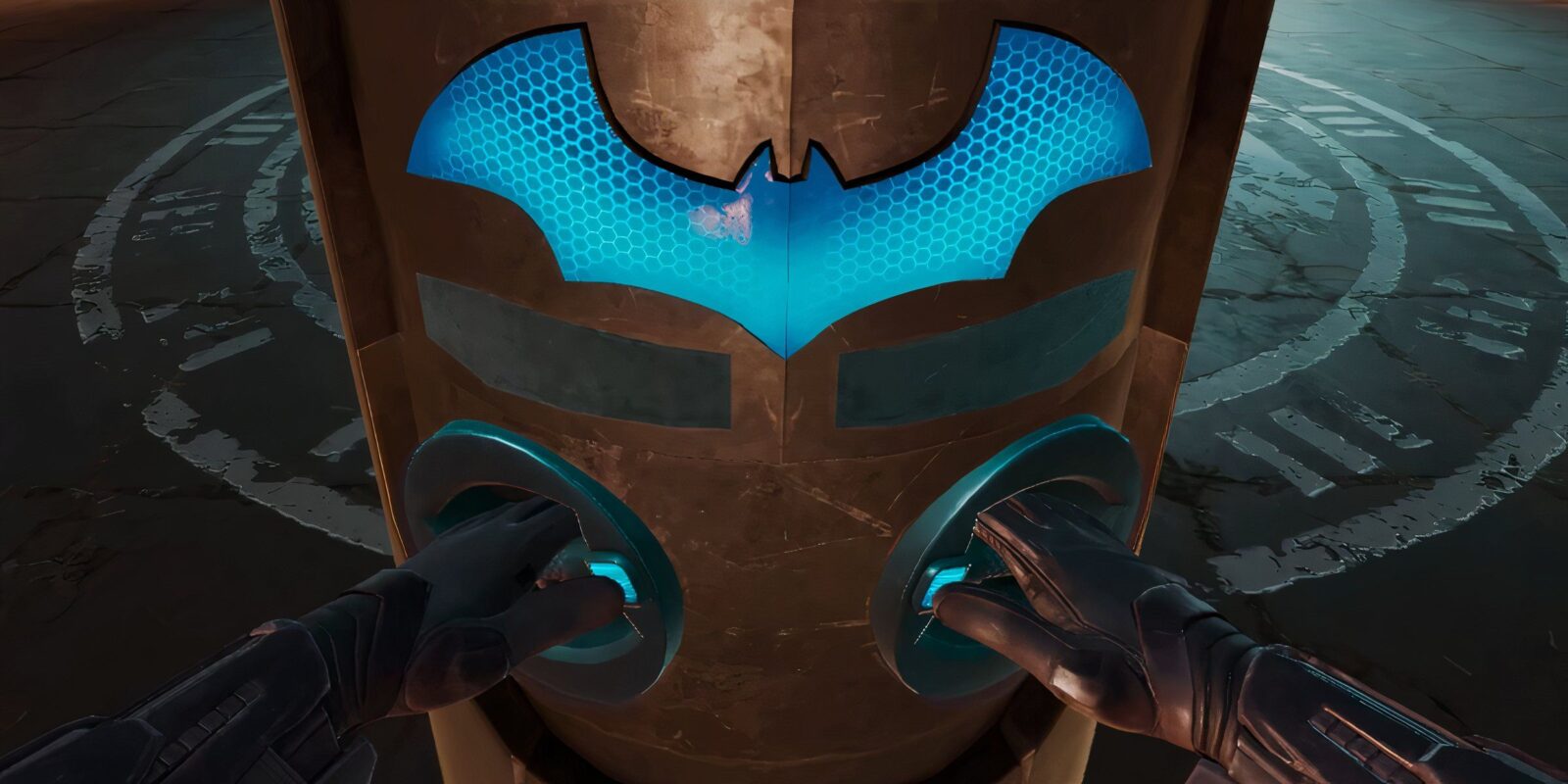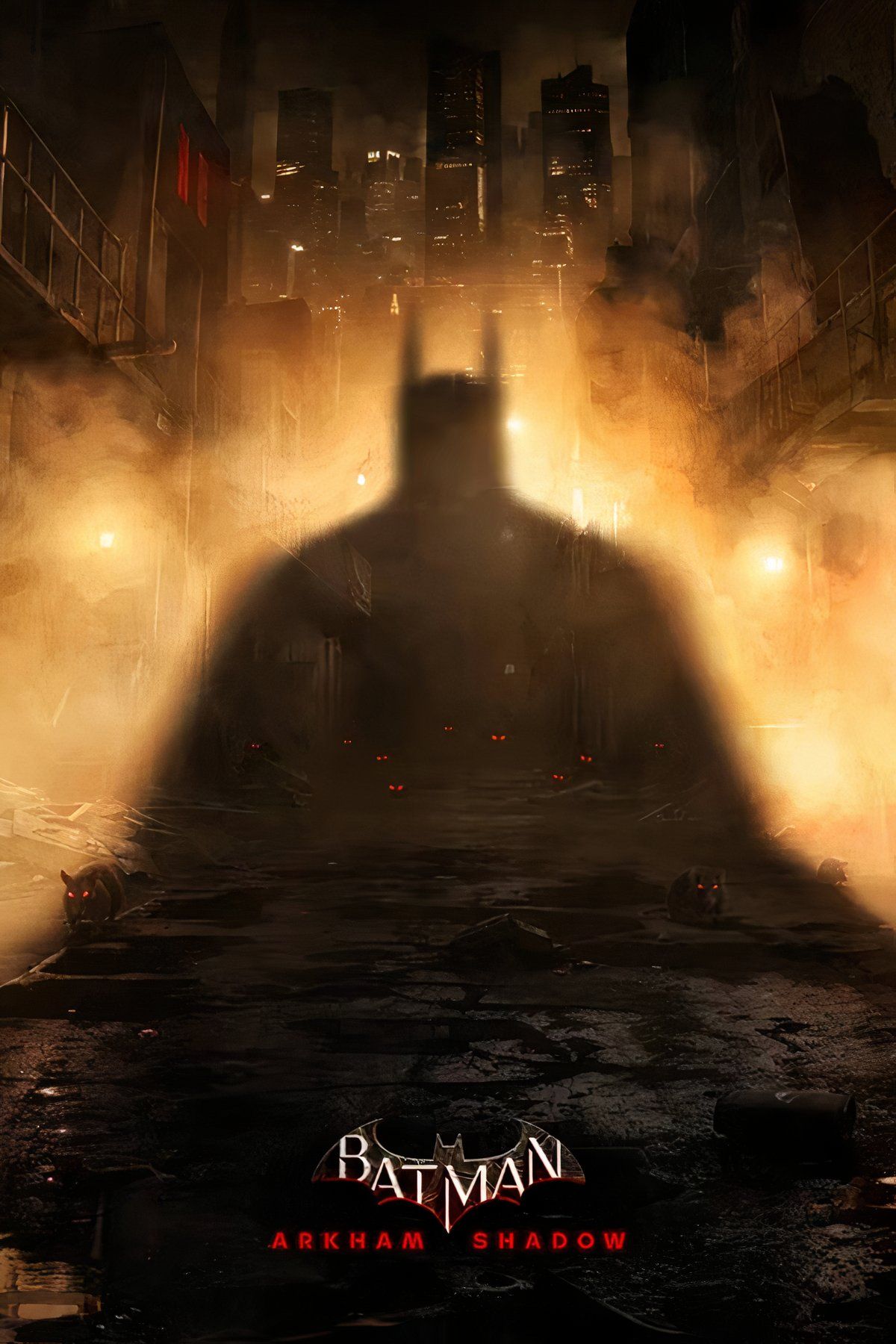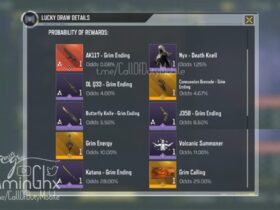A decent chunk of what has defined the Arkham games is the gadgetry that Batman has available. Not only is Batman’s utility belt vital for environmental puzzles and traversal but it’s also a staple element in combat or predator gameplay when earning higher encounter scores via variation multipliers. Because gadgets are always distributed and obtained sequentially throughout Arkham games, players’ move sets and gameplay options gradually increase via campaign progression and eventually hit an apex where any number of gadgets can be interwoven between button-mashed beatdowns or inverted takedowns.
Batman: Arkham Shadow deviates quite a bit from how storytelling is commonly structured in Arkham games, but it is thankfully no different when it comes to introducing gadgets to players. The batarang is the only gadget players have equipped at the beginning of Batman: Arkham Shadow while the Decoder, Explosive Gel, Shock Gloves, and Batclaw are acquired afterward. Besides the Decoder, which still has a neat Disruptor application in predator gameplay, all of these additional gadgets enhance and vary the flow of combat; however, the rate at which they are debuted is perfect for players to gain a baseline mastery of freeflow combat in VR.

Related
Batman: Arkham Shadow is Proof That a Like-Minded POV Could Excel
Batman’s Arkhamverse has always implemented intermittent POVs, but Batman: Arkham Shadow truly sells why such an installment could be successful.
Arkham Games’ Gadget Acquisition is Tied to Story Progression
Batman: Arkham Origins being the earliest entry in the franchise’s timeline to date has had it the easiest in terms of debuting gadgets as many of them are explained as not having been designed or manufactured yet. The Glue Grenade is a temporary resin-based formula that Batman uses before it eventually degrades in Cold, Cold Heart, for example, and it isn’t replaced until Batman crafts the Freeze Blast projectile nine or so years later in Batman: Arkham City.
Likewise, Batman doesn’t have a proper Line Launcher until Batman: Arkham Origins Blackgate, and until then he utilizes the Remote Claw he confiscated from Slade Wilson’s Deathstroke. So, while Batman: Arkham Origins is the only Arkham game allowing players to explore a Batcave as often as they want, it also makes sense why Batman may not be able to equip himself with everything he might need. This is especially immersive in Cold, Cold Heart when players must wait a bit for the Extreme Environment Batsuit rather than having it conveniently prepared and field-ready as soon as Mr. Freeze suddenly rears his head.
Batman: Arkham Knight
withholds the Remote Electric Charge (REC) gun in the
GCPD’s Evidence Lockup
until players shatter the glass display to retrieve it, while the Disruptor is teased early in a Wayne International Plaza penthouse if players discover hidden Batsuit and gadget displays before Nightwing delivers it to them.
In Batman: Arkham Shadow, Bruce Wayne frequently visits a Batcave beneath Blackgate Prison as he swaps between his Batman and Irving “Matches” Malone costumes. But, unlike the Batcave in Origins located beneath Wayne Manor, Shadow’s Batcave is a contingency plan similar to the one beneath Arkham Island in Batman: Arkham Asylum and doesn’t have all the same “bells and whistles.”
It’s made clear that no gadgets are actually stored in this Batcave aside from the Batcomputer’s lone Decoder and that the Batcave itself is more of a means for Bruce to communicate with Alfred and Oracle, train in AR simulations (also known as Batman: Arkham Shadow’s challenge modes), listen to voice messages from characters such as Vicki Vale and Selina Kyle, or return to areas that were explorable in Gotham City before the game’s title card drop. Therefore, Batman is forced to request Batwing Batpod drops when he navigates Blackgate and comes across limpet locks, deactivated consoles, and unreachable vent grates.
Batman: Arkham Shadow Lets Players Absorb Its Standard Punch-Led Freeflow Combat
Batman: Arkham Shadow’s Explosive Gel—an adaptation of the Gel Launcher introduced in Origins Blackgate—is the first combat-related gadget players earn besides the batarang, which they already have slotted into the Batsuit’s chest. But even before it is equipped on the player’s right hip there is a surprisingly diverse amount of options players have in combat once special finisher takedowns are unlocked.
Combat in Batman: Arkham Shadow involves sparse enemies in spacious rooms for the most part with the Monarch Theatre and Carmine Falcone boss fight arena being exceptions designed perfectly for supplementary combat challenge maps. Punching across the room has always been a core part of selling the game’s VR combat and it more than backs itself up with satisfying momentum and a weighty response as guided blows land.
Scaling an enemy and landing back down on them, much less another enemy elsewhere, is also tremendously gratifying, as is breaking a leg at random and breaking an arm as part of a successful blade dodge takedown. Moreover, because the Batclaw isn’t acquired until shortly before the Shadow Batman boss fight, Shadow allows time for its basic, root combat to simmer.
Indeed, the Batclaw plays an interesting role in combat as players punch across rooms to strike Rats and TYGER guards while they’re unable to close that distance with a grapple cable in the meantime. This is Shadow’s bread and butter in VR, and not many combat encounters are left in the campaign once players earn the Batclaw anyhow.
Batman: Arkham Shadow’s Batclaw is a Late-Game Treat, But Not the Star
Rather, there’s an argument to be made that the Batclaw arrives too late to have any genuine or lasting impact on combat, but it’s a superb third-act gadget addition nonetheless. The Batclaw is in every Arkham game, too, and that may have been a consideration made when deciding which gadgets would inevitably be left on the cutting room floor or adapted to meet the needs of combat and environmental interaction.
Not having the Batclaw until nearly the end of the game works in its favor, though, because players get to enjoy punching across rooms without the ability to spam the Batclaw’s clothesline slam.
By the time that the Batclaw can be used in combat, all gadgets are available, too, and meld as a lovely buffet of variation if players are skilled enough to wield them all with precision. That said, combat as Malone is also a great way to emphasize Shadow’s freeflow momentum bereft of any gadgets as players only have pocket sand stuns to rely on outside of ordinary counters, combat maneuvers, and combos—an emphasis made salient in Batman: Arkham Shadow’s Lyle Bolton boss fight skill check.
Game director Ryan Payton recently addressed what features Camouflaj hopes to add in subsequent updates, noting that a Batman: Arkham Origins-inspired difficulty and New Game Plus mode are on the table. A New Game Plus mode would be the perfect answer to Shadow’s late-game Batclaw gripe if it allows all gadgets to be equipped on the Batsuit from the beginning of the game, though it’s possible gadgets could remain intrinsically tied to story unlocks with only XP-purchased skills carrying over.














Leave a Reply